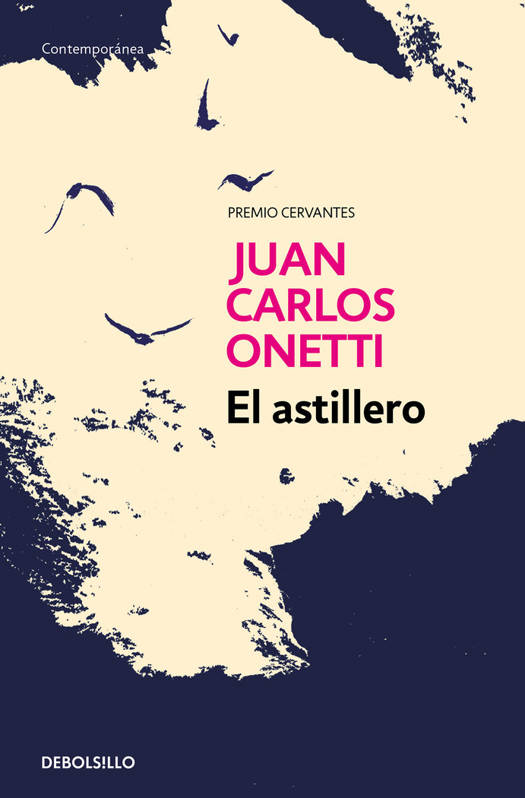
- Afhalen na 1 uur in een winkel met voorraad
- Gratis thuislevering in België vanaf € 30
- Ruim aanbod met 7 miljoen producten
- Afhalen na 1 uur in een winkel met voorraad
- Gratis thuislevering in België vanaf € 30
- Ruim aanbod met 7 miljoen producten
Zoeken
Omschrijving
«En El astillero Onetti se acerca a un equilibrio casi perfecto, a una economía artística que resulta algo milagrosa.»
Mario Benedetti
Regresar a la alucinada ciudad de Santa María, emplearse en el astillero de Petrus y enamorar a la hija de éste es para Larsen la última oportunidad de encontrar un sentido. Sin embargo, muy pronto dicha tentativa se convierte en una rigurosa farsa: no hay nada que hacer en un astillero paralizado y en ruinas, ni es posible amar voluntariamente. A pesar de que la vida lo excluye, Larsen continúa impertérrito en su papel, como si no quisiera mirar a la cara a un mundo en vías de extinción, o tal vez porque fingir es la única salida posible contra la locura.
Julio Cortázar dijo sobre Juan Carlos Onetti:
«El más grande novelista latinoamericano.» ENGLISH DESCRIPTION "In The Shipyard, Onetti comes close to an almost perfect equilibrium, to an artistic economy that seems rather miraculous." -Mario Benedetti
Returning to the dreamed-of city of Santa María, getting a job in Petrus's shipyard, and winning the heart of Petrus's daughter is, for Larsen, the last opportunity to find his purpose. However, the attempt soon becomes a meticulous farse: there is nothing to do in a stagnant, ruined shipyard, nor is it possible to will oneself to love. Even though life precludes it, Larsen continues undaunted in his role, as though he doesn't want to look at the reality of a world en route to extinction, or perhaps because pretending is the only possible way out of madness. Julio Cortázar said about Juan Carlos Onetti: "the greatest Latin American novelist."
Mario Benedetti
Regresar a la alucinada ciudad de Santa María, emplearse en el astillero de Petrus y enamorar a la hija de éste es para Larsen la última oportunidad de encontrar un sentido. Sin embargo, muy pronto dicha tentativa se convierte en una rigurosa farsa: no hay nada que hacer en un astillero paralizado y en ruinas, ni es posible amar voluntariamente. A pesar de que la vida lo excluye, Larsen continúa impertérrito en su papel, como si no quisiera mirar a la cara a un mundo en vías de extinción, o tal vez porque fingir es la única salida posible contra la locura.
Julio Cortázar dijo sobre Juan Carlos Onetti:
«El más grande novelista latinoamericano.» ENGLISH DESCRIPTION "In The Shipyard, Onetti comes close to an almost perfect equilibrium, to an artistic economy that seems rather miraculous." -Mario Benedetti
Returning to the dreamed-of city of Santa María, getting a job in Petrus's shipyard, and winning the heart of Petrus's daughter is, for Larsen, the last opportunity to find his purpose. However, the attempt soon becomes a meticulous farse: there is nothing to do in a stagnant, ruined shipyard, nor is it possible to will oneself to love. Even though life precludes it, Larsen continues undaunted in his role, as though he doesn't want to look at the reality of a world en route to extinction, or perhaps because pretending is the only possible way out of madness. Julio Cortázar said about Juan Carlos Onetti: "the greatest Latin American novelist."
Specificaties
Betrokkenen
- Auteur(s):
- Uitgeverij:
Inhoud
- Aantal bladzijden:
- 240
- Taal:
- Spaans
Eigenschappen
- Productcode (EAN):
- 9788466334310
- Verschijningsdatum:
- 1/06/2016
- Uitvoering:
- Paperback
- Formaat:
- Trade paperback (VS)
- Afmetingen:
- 125 mm x 190 mm
- Gewicht:
- 177 g

Alleen bij Standaard Boekhandel
+ 27 punten op je klantenkaart van Standaard Boekhandel
Beoordelingen
We publiceren alleen reviews die voldoen aan de voorwaarden voor reviews. Bekijk onze voorwaarden voor reviews.








